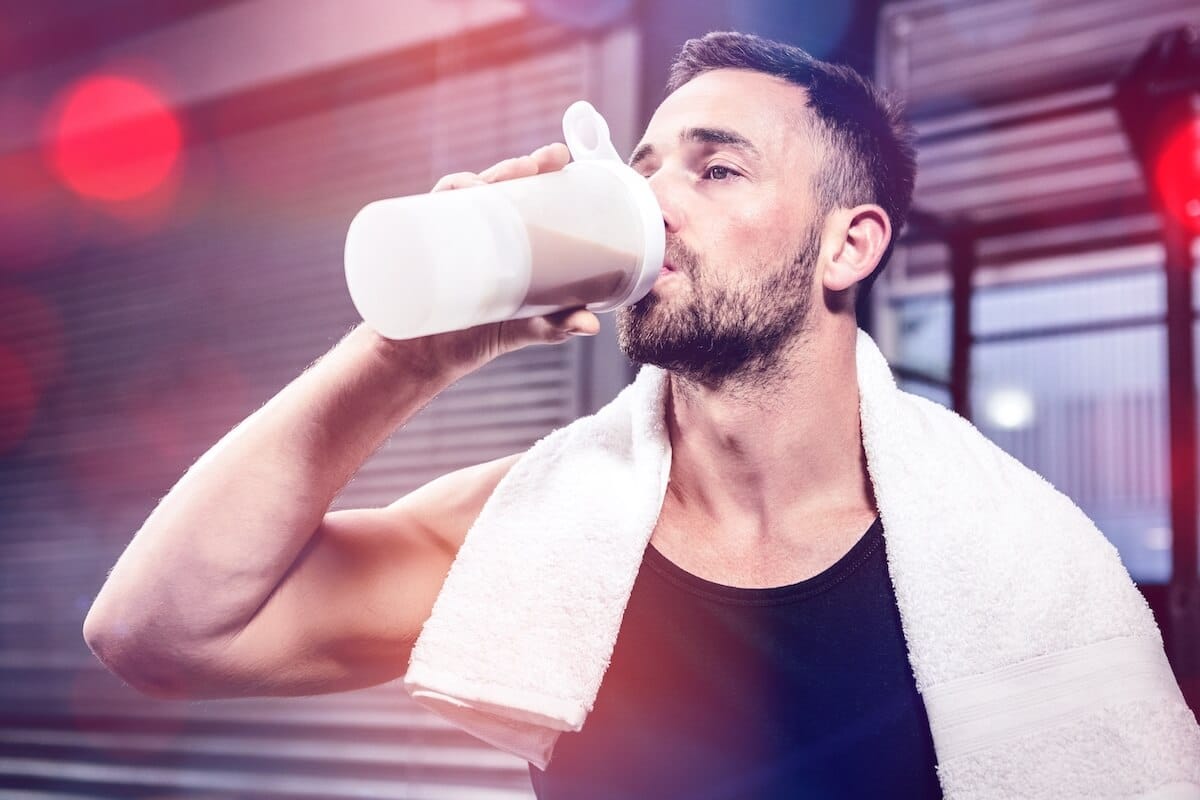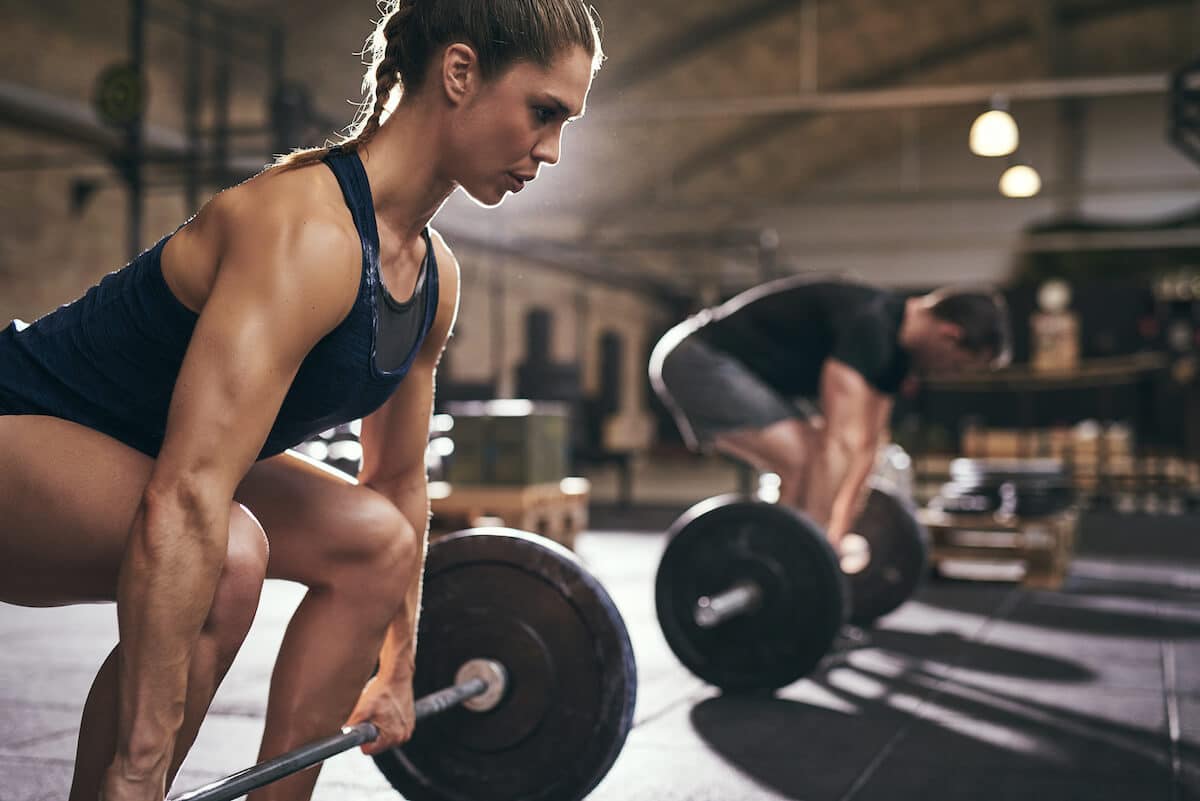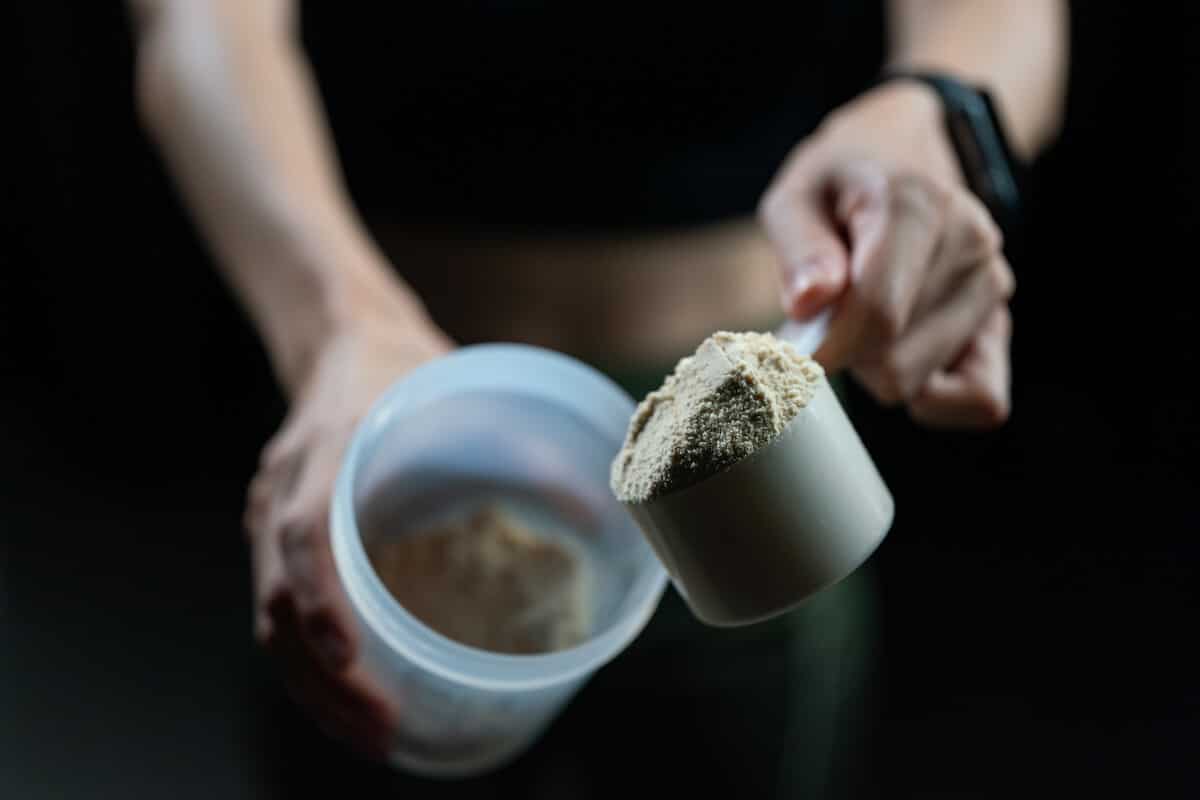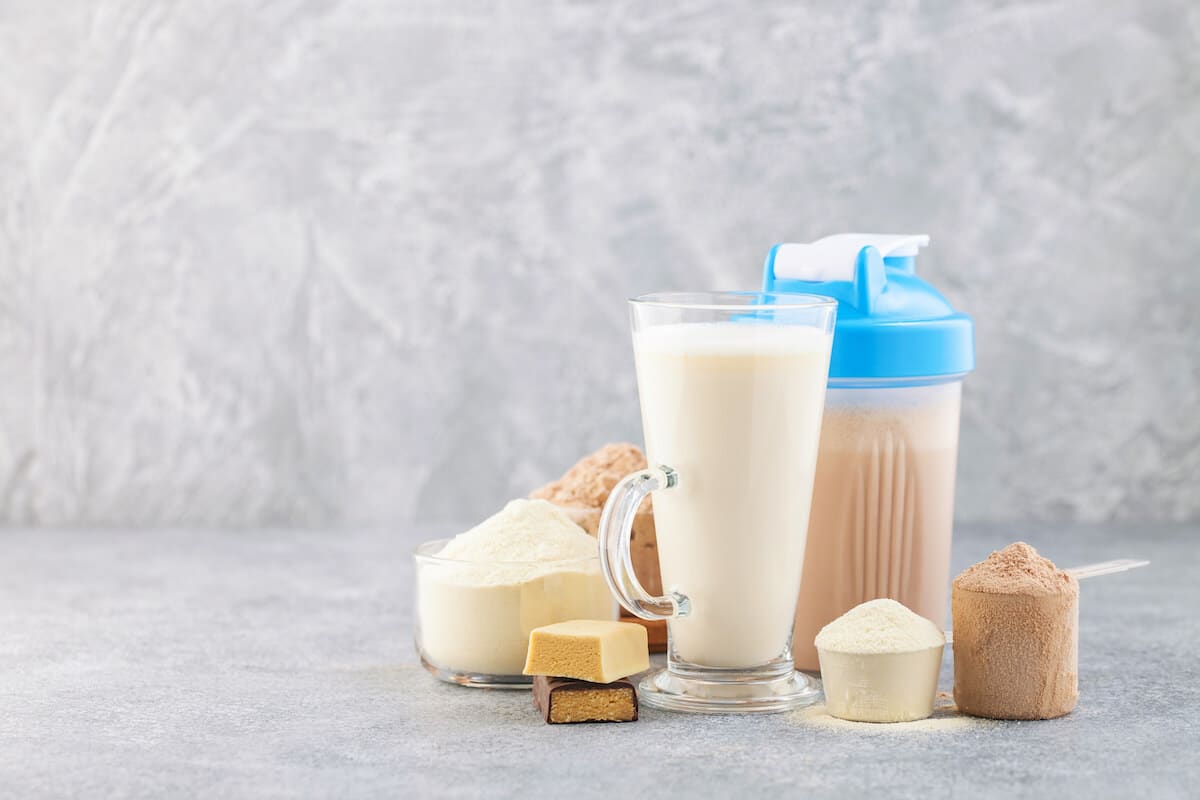
12 May Should You Drink a Protein Shake Before or After a Workout?
Should you drink your protein shake before or after a workout? Does it matter? This question has been present in bodybuilding and strength training communities for decades, and you’ll hear opinions on both sides.
Recent research in workout nutrition suggests that timing doesn’t matter as much as your total protein intake. So regardless of when you take them, protein supplements are a convenient way to get the nutrition your body needs to build muscle strength and size. And they’re a good idea for people of all ages and fitness levels.
This guide explores what protein does in your body, how much you need it, and when to drink your protein shake.
The Role of Protein in Nutrition and Muscle Growth

Every day, thousands of processes happen within your body that would not be possible without protein. Protein is one of the three macronutrients — protein, carbohydrates (carbs), and fats — for survival.
Protein is used throughout your body — from individual cell structures to your largest organ, your skin —and is also essential for energy, hormone, enzyme production, and several other functions. It’s found in most animal products and some whole food plant sources, such as nuts, seeds, legumes, and grains.
Protein is one of the primary building blocks for muscle tissue. It’s made up of smaller building blocks known as amino acids, which are divided into essential amino acids (EAAs) and non-essential amino acids.
Your body can only produce non-essential amino acids, so you must get your essential amino acids from dietary protein. When a food contains all nine essential amino acids, it is known as a complete protein, which you need to support your training sessions.
There’s also a subcategory of essential amino acids known as branched-chain amino acids (BCAAs). BCAAs are three essential amino acids with a branched molecular structure and have been shown to aid post-workout recovery. As such, they’re particularly popular with athletes and bodybuilders.
What Does Protein Do for Your Muscles?
When you consume protein, it breaks down into amino acids. Then, through protein synthesis, they’re recombined based on your body’s needs. For example, muscle protein synthesis happens when your body incorporates these amino acids into muscle proteins.
Muscle protein synthesis is responsible for changes in lean muscle mass following resistance training. Strenuous exercise creates small tears in your muscle fibers, and through the process of muscle repair, you’ll see an increase in muscle size. This is one of the reasons why it’s essential to allow enough time for muscle recovery between workouts.
How Much Protein Do You Need?
The exact amount of protein you need each day depends on your activity level, age, health, and fitness goals. For example, the recommended daily intake is 0.8 grams of protein per kilogram (2.2 pounds) of body weight for a moderately active person. However, people who are extremely active or pursuing muscle growth goals may need up to 2 grams of protein per kilogram of body weight.
It’s best to consult a registered dietitian to learn about your individual protein needs. A professional can help you identify the right amount of protein for your body weight, age, health, and fitness goals. Your healthcare professional can also help you lose weight, improve overall wellness, and change your body composition.
How Much Does Protein Timing Matter?
Many bodybuilders and personal trainers believe that protein timing is crucial for muscle growth, also known as anabolism. Protein timing is based on the anabolic window theory. This theory refers to the amount of time you have after exercise to optimize training-related anabolism, or the process of muscle growth.
According to the International Society of Sports Nutrition, further research is needed to prove the efficacy of nutrient timing and the anabolic window theory. Instead, current research indicates that total daily protein intake is strongly linked to muscle size and growth.
Many nutritionists believe that focusing on protein timing is unnecessary to achieve positive results from resistance training. However, emphasizing the amount of protein in your diet each day is crucial.
Should You Drink Your Protein Shake Before or After Workouts?

So, should you drink your protein shake before or after a workout? It’s up to you. Either one will support muscle gain, as current research indicates that protein timing is much less important than total protein intake.
If you can’t decide between drinking your protein shake before or after your workout, experiment with both and do what feels best in your body. Here’s a quick comparison between the two.
Pre-Workout Shake
Drinking your protein shake before a workout might mean having it for breakfast before leaving for the gym or as a late lunch after work.
- Pros: Drinking a pre-workout shake before your workout can give you the much-needed energy to hit the gym. This is especially true if you exercise after several hours without food.
- Cons: Some people experience an upset stomach when they drink a shake too close to when their workout begins. And if you’re prone to feeling hungry after a workout, it might be best to save your shake for later.
Instead of a standard protein shake, some prefer a supplement with ingredients that target performance. For example, many pre-workouts feature BCAAs, which are associated with less fatigue during a workout.
Post-Workout Protein Shake
The most common timing for a protein shake is post-exercise. Some people drink a shake as soon as they finish their workout, while others prefer to wait for 15 to 20 minutes.
- Pros: Drinking your protein shake after a workout can help you feel full for longer, which can be helpful if you’re working towards fat loss goals. It can also help you feel reenergized after a tough session.
- Cons: If you don’t feel hungry after a workout, drinking a shake after exercise can cause an upset stomach or make you feel sluggish. If you often deal with hunger pains during your workout, it can be best to have your shake then.
Best Protein Powder Options

Even if the precise timing of your protein shake doesn’t matter, the quality of the protein supplement does. Different types of protein supplements use grades of ingredients, so you want to look for a brand that uses high-quality protein sources.
The three most common choices include whey protein powder, casein protein powder, and plant-based protein powder. Regardless of which you prefer, the best choice is a brand that uses Ingredient Optimized products, as these protein supplements have a higher bioavailability.
Bioavailability refers to your body’s ability to absorb the nutrient for use within the target system. If your product doesn’t have high protein bioavailability, you won’t be getting as much protein as you can from your supplement. In other words, you won’t get your money’s worth.
Get Ready to See Results
Remember, it doesn’t matter if you have a protein shake before or after a workout — what matters most is that you get enough protein each day. Either way, you’ll support your body in reaching your fitness goals.
If you’d like to find an Ingredient Optimized option to help you reach your fitness goals, check out Performix ioWhey Protein or Kaged Clean Meal. And if you’re plant-based, Kaged Plantein or MyProtein’s The ioPea are excellent options that don’t include animal products. These supplements feature ingredient-optimized protein with high bioavailability, so you can be sure you’re getting the most for your money.


